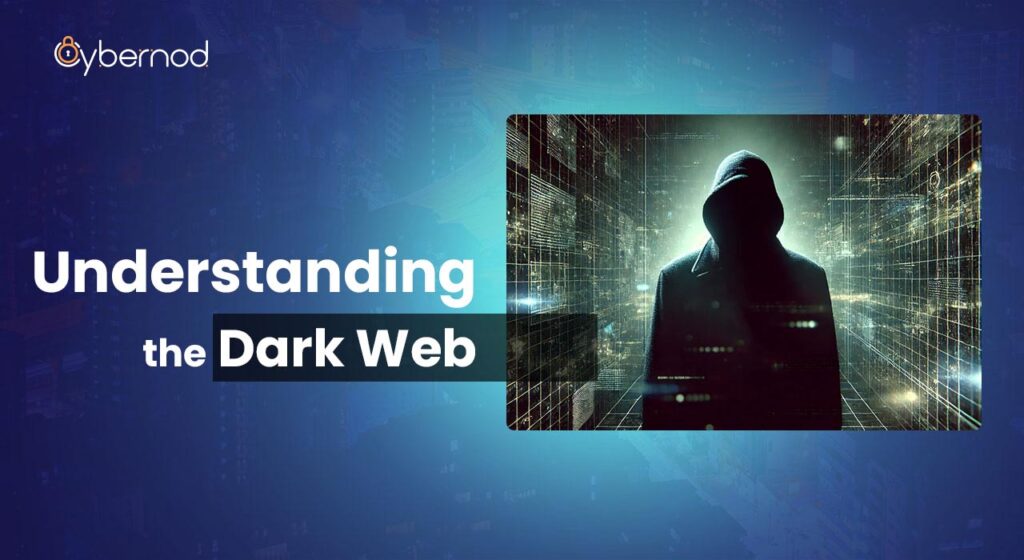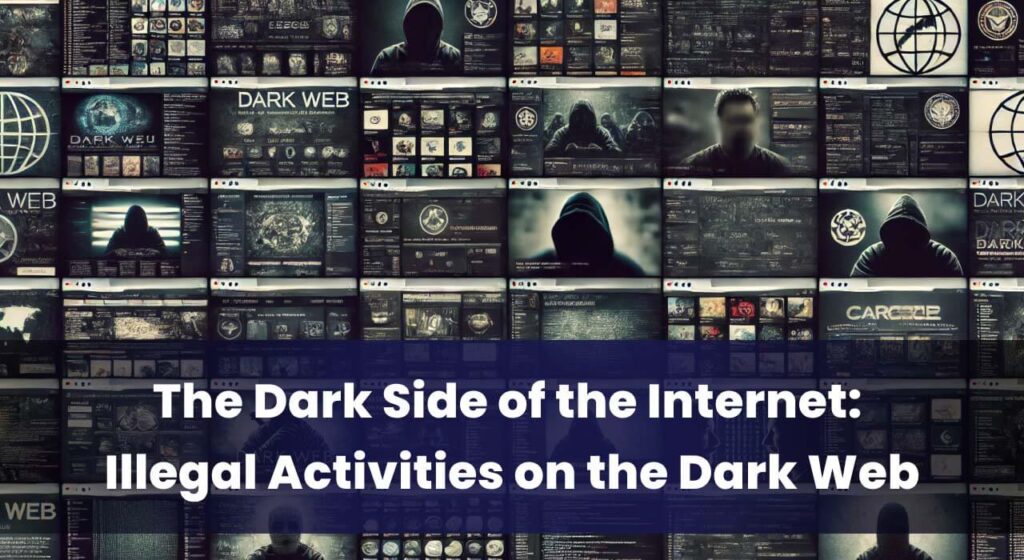
The dark web, a shadowy realm within the vast expanse of the internet, remains largely hidden from the prying eyes of conventional search engines. Unlike the surface web, which is readily accessible to anyone with an internet connection, the dark web requires specialized browsers and specific knowledge to navigate. This enigmatic corner of the digital landscape has garnered significant attention due to its association with illicit activities, ranging from drug trafficking and human trafficking to the dissemination of child exploitation materials.
The origins of the dark web can be traced back to the early 1990s when researchers at the United States Naval Research Laboratory developed The Onion Router (Tor) network. Initially designed to protect government communications, Tor gradually gained popularity among individuals seeking anonymity and privacy online. As awareness of Tor grew, it became a haven for those wishing to operate outside the reach of law enforcement and censorship.
This article delves into the intricacies of the dark web, exploring its definition, historical context, and the pressing concerns surrounding its use for illegal purposes. By understanding the nature of the dark web and the challenges it poses, we can develop effective strategies to combat the illicit activities that proliferate within its hidden corners.
Accessing the Dark Web

To navigate the labyrinthine depths of the dark web, users must employ specialized browsers that circumvent traditional internet infrastructure. One of the most prominent and widely used browsers for this purpose is Tor, short for The Onion Router. Tor operates by utilizing a layered encryption system known as onion routing, which routes user traffic through a series of relay nodes distributed worldwide. By obfuscating the user’s IP address and the path of their data, Tor provides a significant degree of anonymity, making it difficult for third parties to track online activities.
However, while Tor offers a measure of privacy, it is not entirely impervious to threats. Users who venture into the dark web must be aware of the potential risks associated with accessing such a clandestine environment. Malware, phishing scams, and other online threats can pose significant dangers to unsuspecting individuals. Additionally, the dark web is notorious for hosting illegal activities, such as the sale of illicit goods, the dissemination of harmful content, and the facilitation of criminal networks. Therefore, accessing the dark web requires a cautious and informed approach, with users taking necessary precautions to protect their personal information and devices.
Legal and Illegal Activities on the Dark Web

While the dark web is often associated with illicit activities, it is important to recognize that it can also be used for legitimate purposes. Journalists and activists have utilized the anonymity provided by the dark web to expose corruption, disseminate censored information, and protect their identities. Additionally, the dark web hosts various online marketplaces where individuals can buy and sell goods and services anonymously.
However, the dark web is predominantly known as a breeding ground for illegal activities. Drug trafficking is one of the most prominent illicit activities on the dark web, with various marketplaces offering a wide range of narcotics. Human trafficking, including the exploitation of children, is another heinous crime facilitated by the anonymity of the dark web. Additionally, the sale of illegal weapons and the dissemination of child exploitation materials are pervasive issues within this hidden corner of the internet.
Several high-profile cases have highlighted the devastating consequences of criminal activities on the dark web. For instance, the Silk Road, a notorious online marketplace, was dismantled by law enforcement in 2013, leading to the arrest of its founder, Ross Ulbricht. The Silk Road was responsible for facilitating the sale of drugs, counterfeit currency, and other illegal goods on a massive scale. Similarly, the arrest of the administrators of the AlphaBay market in 2017 marked a significant blow to the dark web’s drug trade. These cases demonstrate the potential for law enforcement to disrupt and dismantle criminal networks operating on the dark web.
The Role of Law Enforcement

Monitoring the dark web presents significant challenges for law enforcement agencies. The anonymity provided by Tor and other privacy-enhancing technologies makes it difficult to trace the activities of individuals and groups operating within this hidden corner of the internet. Furthermore, the vastness of the dark web, with its countless websites and forums, complicates the task of identifying and tracking potential criminal activity.
Despite these challenges, law enforcement agencies have developed various techniques to investigate and apprehend criminals operating on the dark web. One common approach involves undercover operations, where law enforcement agents pose as buyers or sellers on dark web marketplaces to gather intelligence and identify targets. Additionally, advanced forensic techniques are employed to analyze digital evidence, such as IP addresses, cryptocurrency transactions, and online communications, to link individuals to specific crimes.
Given the global nature of the dark web and the transnational nature of many criminal activities, international cooperation is essential in combating dark web-related crimes. Law enforcement agencies around the world must collaborate to share information, intelligence, and resources to effectively target and dismantle criminal networks operating across borders. International law enforcement initiatives, such as Europol and Interpol, play a crucial role in facilitating cooperation and coordination among different jurisdictions.
Cybersecurity Implications

The dark web poses significant cybersecurity threats to both individuals and businesses. Individuals who inadvertently access or engage with malicious content on the dark web can expose themselves to malware, phishing scams, and identity theft. Additionally, personal information, such as credit card details or social security numbers, may be compromised if it is inadvertently shared on the dark web.
Businesses are also vulnerable to dark web threats. Cybercriminals often use the dark web to buy and sell stolen data, including customer information, intellectual property, and corporate secrets. This can lead to data breaches, financial losses, and reputational damage. Furthermore, businesses may be targeted for ransomware attacks, where attackers encrypt sensitive data and demand a ransom payment for its release.
To protect themselves from dark web threats, individuals and businesses should implement robust cybersecurity measures. This includes using strong, unique passwords for all online accounts, enabling two-factor authentication, and keeping software and operating systems up-to-date with the latest security patches. Additionally, individuals should be cautious about clicking on suspicious links or downloading attachments from unknown sources.
Cybersecurity professionals play a vital role in safeguarding individuals and businesses from dark web threats. They can conduct security assessments to identify vulnerabilities, implement effective security measures, and respond to incidents. Cybersecurity professionals also stay informed about emerging threats and trends in the dark web landscape, allowing them to provide valuable guidance and expertise to organizations.
The Future of the Dark Web
The dark web is a constantly evolving landscape, shaped by technological advancements and evolving strategies of law enforcement. As technology continues to advance, new tools and techniques may emerge that could either enhance or hinder the anonymity and accessibility of the dark web. For example, advancements in artificial intelligence and machine learning could enable law enforcement to more effectively analyze vast amounts of data and identify patterns of criminal activity within the dark web.
The monitoring and regulation of the dark web raise complex ethical considerations. While there is a strong imperative to combat illegal activities, excessive surveillance can infringe upon individual privacy and civil liberties. Striking a balance between security and freedom is a delicate task that requires careful consideration of the potential consequences of various approaches.
In this complex environment, the use of Cybernode can help businesses monitor their information on the dark web and determine if any of their data has been leaked. By using Cybernod, businesses can become aware of the details of any leaked information and take appropriate measures to mitigate potential threats.
As businesses continue to navigate the complexities of the dark web and other emerging cybersecurity threats, it’s essential to have a robust compliance framework in place. To learn more about the importance of regular cybersecurity audits in the UAE and how they can help protect your organization, check out our article, ‘The Importance of Regular Cybersecurity Audits for Maintaining Compliance.‘
In conclusion, the dark web remains a challenging and multifaceted phenomenon. Understanding its nature, the activities that take place within it, and the cybersecurity risks it poses is essential for individuals and organizations alike. By staying informed about the dark web and adopting appropriate cybersecurity measures, individuals can protect themselves from potential threats. Additionally, law enforcement agencies and cybersecurity professionals must continue to develop strategies to combat the illegal activities that proliferate within this hidden corner of the internet.

Comments